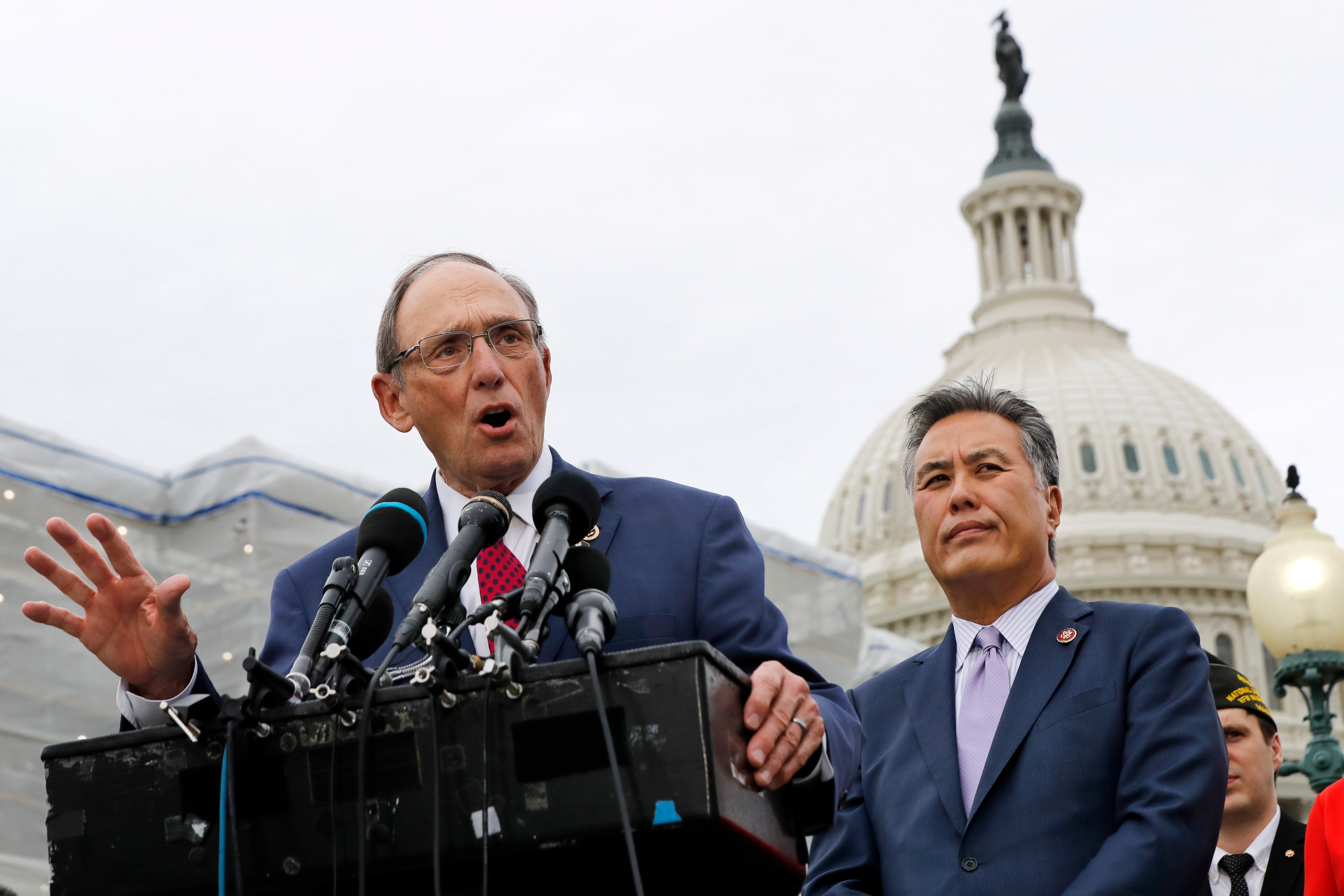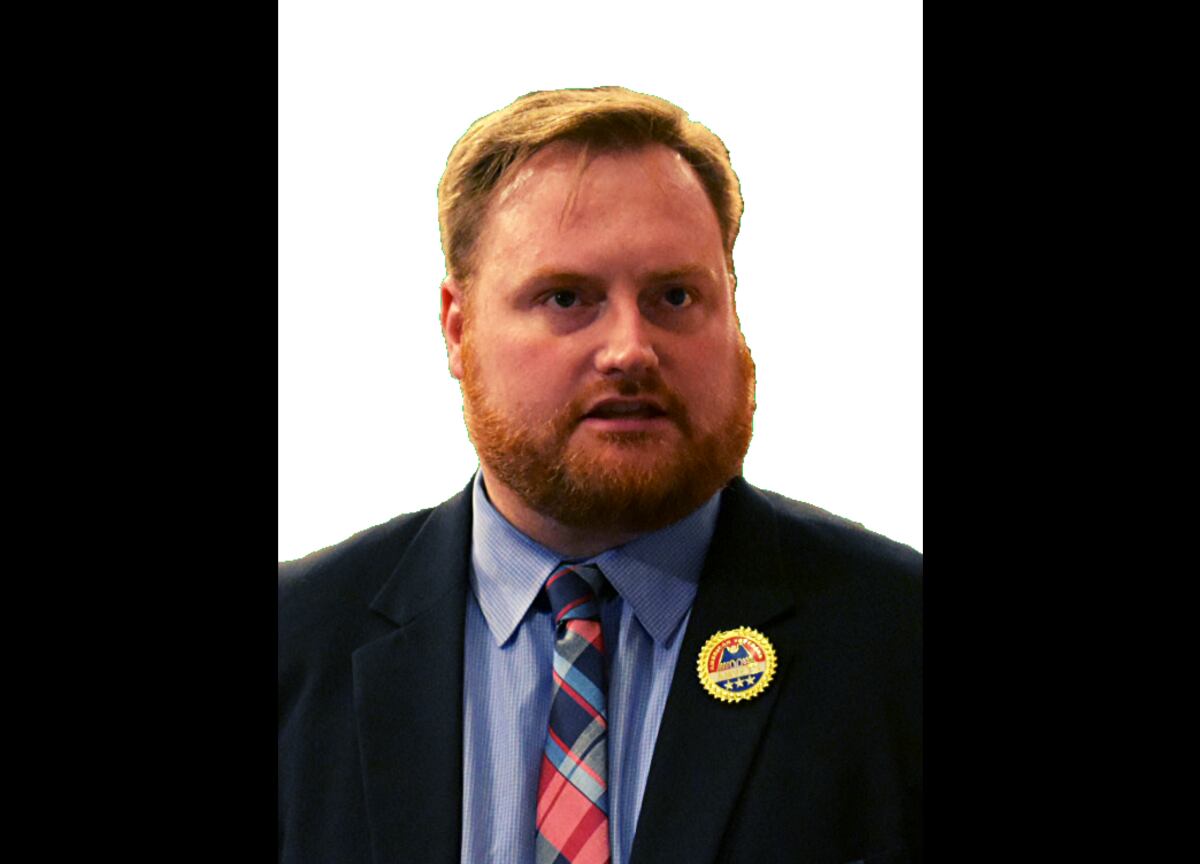Partisanship is nothing new to D.C. politics. But historically, veterans issues, particularly in times when Americans were serving and dying on foreign soil, were spared of the general bickering in lieu of a shared commitment to do right by our nation’s veterans. But now politics is playing an unwelcome role on the congressional committee designed to serve those who have worn the uniform.
On Tuesday morning, House Veterans Affairs Committee (HVAC) Chairman Mark Takano of California announced that seven proposed amendments were all too controversial and partisan during what appeared to be a routine hearing. This move came as a surprise to the “other side” — the Republicans with fewer votes in the House of Representatives, who had proposed the amendments. Chairman Takano, in a head-scratching move, stumping the casual observer, proclaimed there would be neither debate nor vote on the amendments. His counterpart across the aisle, Ranking Member Phil Roe of Tennessee, voiced his objection to the ruling only to be shut down by the chairman. Another member of the minority party requested to be recognized for a parliamentary inquiry, only to be met with the same result. What happened next was unprecedented in my tenure in our nation’s Capitol and from my understanding, in the history of the committee. If actions like these endure, this may mark a point in history that will have a cascading effect on the lives of veterans and their families for years to come.
RELATED

Upon hearing “No” from the committee chairman, the Republicans rose in unison and left the hearing room in protest before a vote could be held. A vote that was part of the job description for those who’d been sent to Capitol Hill by their respective electorates. This disastrous turn of events on Tuesday would bring an abrupt end to a critical stage in the lawmaking process, along with it the long-standing tradition of bipartisanship for the sake our military veterans who served in harm’s way, as well as the spouses, children, and parents who bear the burden of that service in the event of injury or death.
As the lead voice for the 20 million veterans in this country, AMVETS has a responsibility to ensure those voices are heard — in resounding fashion. When partisanship leads to suppression of debate and protest takes the form of walk-outs, it is every veteran who’s waiting on quality health care to be timelier and more accessible, benefits to be more efficiently administered, and hopelessness to be replaced by opportunity, who suffers. While there’s likely to be a veteran somewhere in the country contemplating whether life is worth living — as you’re reading this — our elected legislators have ceased legislating, bickering over parliamentary procedure and mere slights instead of taking action on direly needed legislation. On the other side of Capitol Hill, thankfully the Senate Committee on Veterans Affairs is upholding its responsibilities, maintaining bipartisan focus on the challenges at hand. Working together as required to fulfill their promise to veterans, the way the House Committee had operated for decades — until now.
Rather than launch into blind outrage, albeit understandable, veterans need to know how it got to this point and let that understanding color future actions in response. To start Tuesday’s hearing, Chairman Takano, a Democrat, announced he was, once again, delaying debate on the IMPROVE Well-Being for Veterans Act (Incorporating Measurements and Providing Resources for Outreach to Veterans Everywhere). This bill was written by Rep. Jack Bergman of Michigan, a Republican and retired Marine Corps lieutenant general, who had introduced it along with in Rep. Chrissy Houlahan, a Democrat and Air Force veteran, from Pennsylvania, making it bipartisan legislation. With more than 150 cosponsors, nearly evenly divided, it was not just bipartisan, it was on a fast track to passage by Congress. Not so fast, though. Despite urging from AMVETS and other veteran advocates, the majority party inexplicably refused to schedule the bill for months, refused to invite veteran groups to provide their thoughts on the legislation, and stonewalled others.
But it would be this bill when the committee would choose to make it a partisan circus. The one bill that had hit on every priority that AMVETS had pressed since the beginning of the year. The one bill whose passage would serve as acknowledgement that what we’ve been doing as a nation for years isn’t making enough of an impact on the national mental health crisis and resulting suicide epidemic. The one bill that would go beyond the tired, ineffective answers to veteran suicide, once and for all. A bill that would fuel what AMVETS believes the VA really needs to curb veteran suicide — investment in community partners to take on the issues at the local levels and in ways that had never been tried: breaking the insanity loop of doing the same thing, yet expecting a different result.
RELATED

Now that we’ve called out the problem, it’s time to answer the call to action. Demand that the members of the House Veterans Affairs Committee return to its bipartisan character for the sake of our nation’s defenders and put aside concerns over who gets the credit for the bills that make it to the president’s desk. That needs to start with the one at the center of Tuesday’s kabuki theater, the Deborah Sampson Act, which will address several important issues facing women veterans if passed. House Republicans had proposed seven amendments to the bill. Some of the amendments were clearly related, such as those aiming to protect veterans’ children from potential sexual predators while being in the VA-run childcare during doctor appointments. Other amendments were only peripherally, if at all, related, such as two that would give Department of Veterans Affairs employees the right to choose not to pay union dues or to cease paying dues.
Whether associated or not, measures of all flavors are typically part of the sausage making in the legislative process. Talking across the aisle is a part of that process in order to address the tough issues before critical markup stage and allow public debate in order to flesh out underlying and often not-so-obvious concerns. What’s maddening in this latest instance is House Democrats outnumbered the Republicans and had the votes needed to defeat the amendments if they so wished, assuming ordinary rules and tradition were extant. An assumption rendered invalid once the chairman had made it clear that political leverage was more important than political efficacy to him.
Now more than ever, the lives of veterans hang in the balance of the decisions made by the leaders of the once-venerable House Veterans Affairs Committee. There is too much at stake, including millions of lives, for this latest turn of events to be acceptable. If the current committee leadership and its staff cannot get the job done without all the unproductive drama we’re now witnessing, it’ll be time for a curtain call and a new cast of leaders with the character to do the job of fulfilling our nation’s promise to her veterans.

Joe Chenelly, AMVETS national executive director. AMVETS is a congressionally chartered veterans service organization. Chenelly is a Marine Corps combat veteran of operations in Afghanistan & Iraq.
Editor’s note: This is an Op-Ed and as such, the opinions expressed are those of the author. If you would like to respond, or have an editorial of your own you would like to submit, please contact Military Times managing editor Howard Altman, haltman@militarytimes.com.





